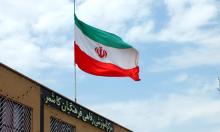Quarrel in Arabia affects Iraq attack
Saudis miffed at Qatar for its support of U.S. military buildup.
It appears Saudi Arabia and Qatar are headed for a quarrel about the war on terror that could affect U.S. forces deployed in Qatar, says Stratfor, the global intelligence company. Doha's willingness to support the U.S. military's buildup for a war with Iraq is making rulers in Riyadh irate, a feeling the Al Jazeera TV network has only compounded by airing criticisms of the Saudi regime.
Saudi daily al Watan called Qatar's foreign minister, Sheikh Hamad bin Jassem al Thani, a "dwarf" today after he met with his Israeli counterpart Shimon Peres in Paris. The insult is just the latest in a string of sour notes sounded between Riyadh and Doha.
Layers of resentment are contributing to the tensions between Qatar and Saudi Arabia. At the surface, Riyadh is genuinely angry about the negative press coverage by Doha-based Al Jazeera, a satellite TV network that broadcasts relatively uncensored material throughout the Arab world. Beneath this outrage over Qatari press freedoms is the fear that Qatari support for a U.S. military campaign against Iraq could result in Washington's advancing its war plans.
Tensions between the two Gulf neighbors could create an unstable environment for U.S. troops deployed in the region in the short- to mid-term. In a worst-case scenario, Saudi Arabia might pressure Qatar to oust the U.S. forces, or it might stir dissidents inside its tiny neighbor to try to destabilize the Doha regime or even launch assaults against American military personnel.
Qatar is a key U.S. military asset, and it likely will play a strategic role if America wages war on Iraq. American military forces began earlier this year building up the al Udeid air base to augment the two main bases it already has in Qatar. They reportedly have moved in munitions, communications and other equipment out of neighboring Saudi Arabia. U.S. troops also have upgraded or built runways and hangars at the base, and both U.S. Vice President Dick Cheney and Defense Secretary Donald Rumsfeld have visited the tiny Gulf state in recent months, The Associated Press reported June 30.
The other two key U.S. bases in Qatar are Camp Al Sayliyah and Camp Snoopy. Camp Al Sayliyah on the outskirts of Doha is stocked with tanks, armored vehicles, ammunition and other U.S. Army equipment. The Army also runs Camp Snoopy, which serves as a logistics hub. It is adjacent to the main airport in Doha.
Riyadh has flatly refused to allow Washington to conduct a military campaign against Iraq from U.S. bases in Saudi Arabia. U.S. military planners may be hoping to turn the al Udeid air base into an operations center to replace the Combined Air Operations Center at the Prince Sultan Air Base in Saudi Arabia. There are about 3,300 American troops now deployed in Qatar.
Saudi Arabia likely feels threatened by the U.S. buildup at al Udeid, which Central Command chief Gen. Tommy Franks has hinted is intended to replicate the Prince Sultan air base's capabilities for communications and command and control. Worse, Riyadh does not want the United States ensconced in Baghdad and therefore is irate with the Qataris for undermining its efforts to stave off the U.S. campaign by offering an alternate base for air operations.
Al Jazeera's broadcasts of criticism of the ruling House of Saud only exacerbate Riyadh's strategic concerns. The government in Riyadh – like most Arab governments – is not used to being questioned publicly in the Arab media. Most of the region's governments have complained to Doha about Al Jazeera's coverage, which is relatively uncensored when compared to the largely state-owned media in the Arab world.
The troubles between the two have heated up since June 25, when Al Jazeera aired a live debate wherein guests, including a London-based Saudi dissident and an Egyptian journalist, discussed and criticized Saudi Crown Prince Abdullah's peace initiative for the Middle East. In response, Saudi Foreign Minister Prince Saud al-Faisal failed to stop in Qatar during a regional tour a few weeks later.
Coming from Riyadh, the condemnation of Thani's meeting with Peres is ironic: It was Saudi Crown Prince Abdullah who pushed forward a proposal promising Israel peace with the entire Arab world. But the criticisms have little to do with Israel. Instead, Saudi Arabia is warning Qatar of its growing displeasure. It is unclear what Riyadh can or will do to rein in Qatar, but as the recent warnings crystallize into a coherent policy, Doha can expect trouble from its neighbor.
CNN graphic
&to=https://www.worldnetdaily.com' target=_blank>WorldNetDaily
Subscribe to Pravda.Ru Telegram channel, Facebook, RSS!




